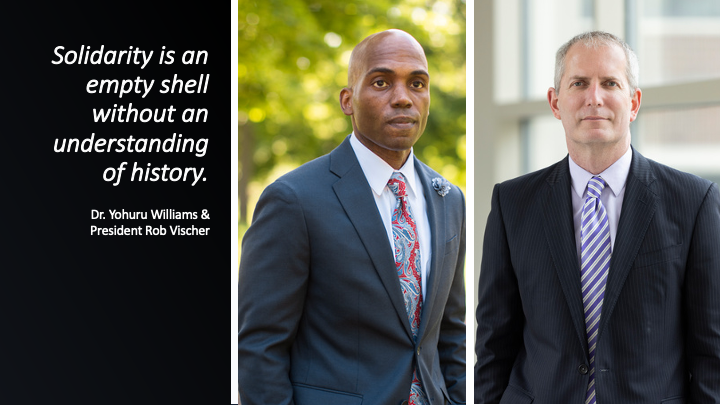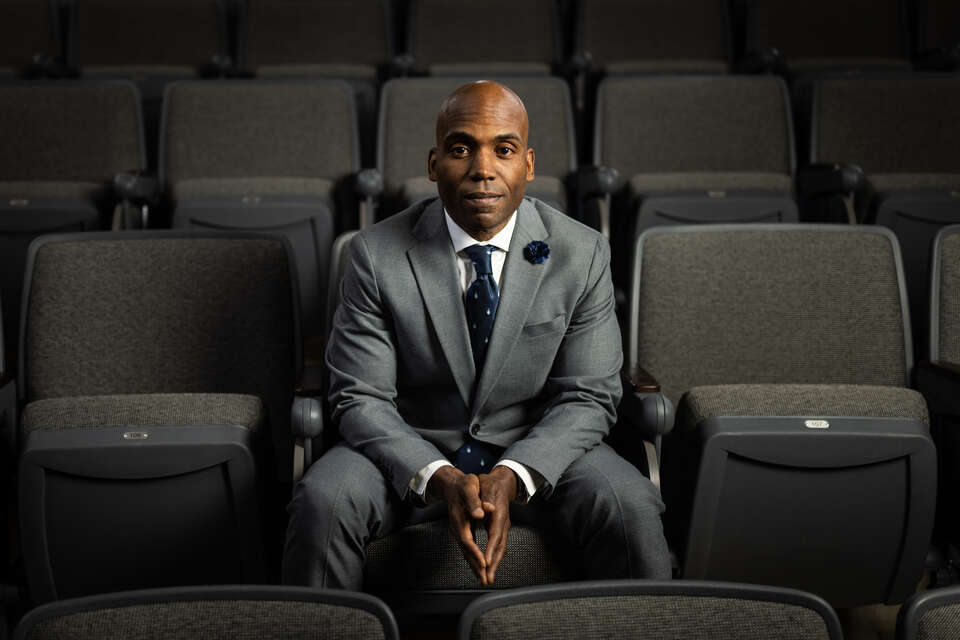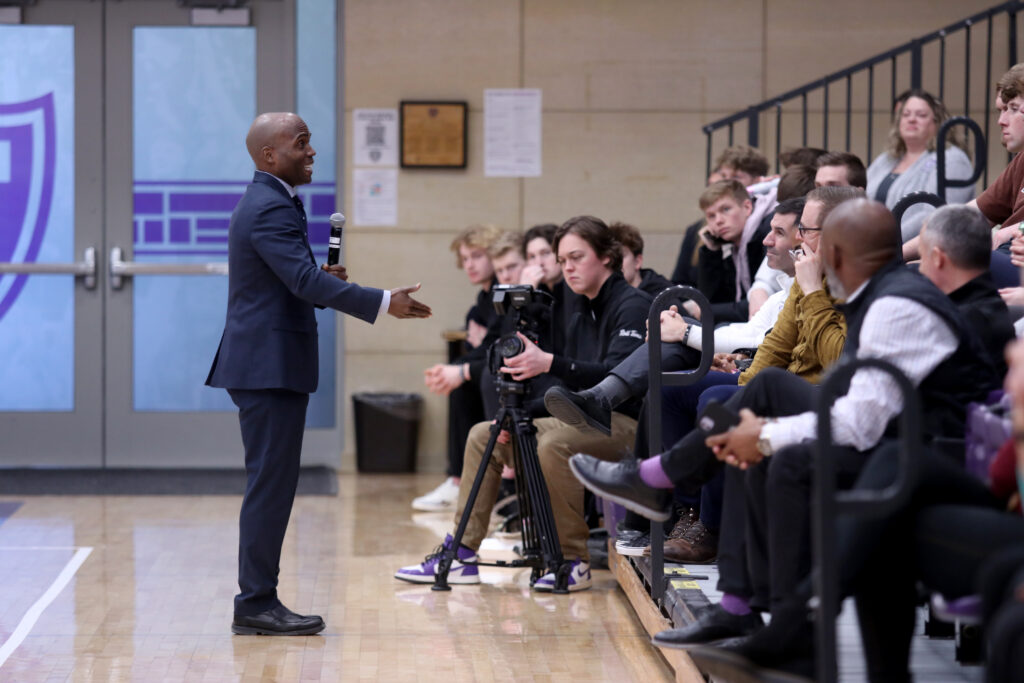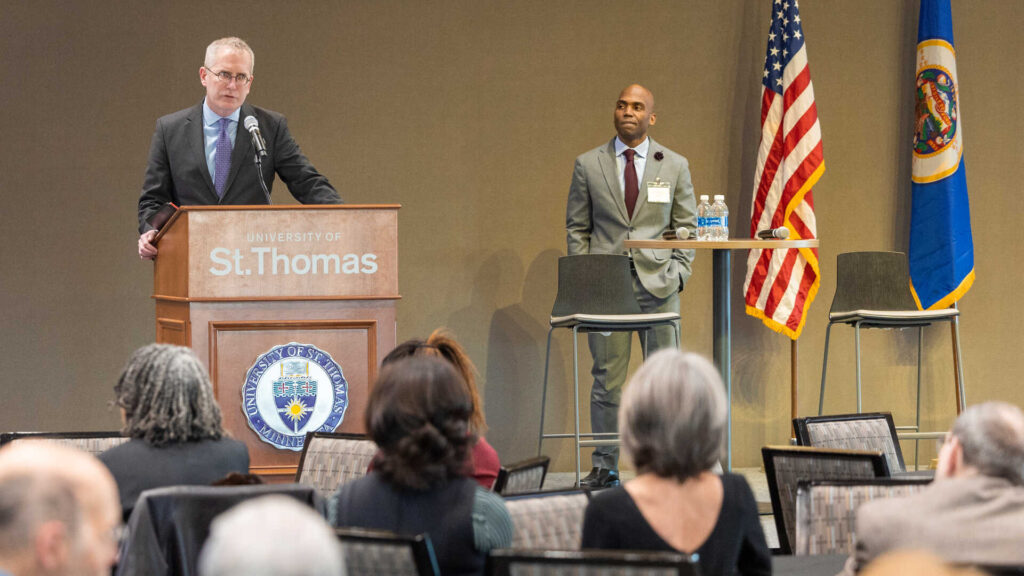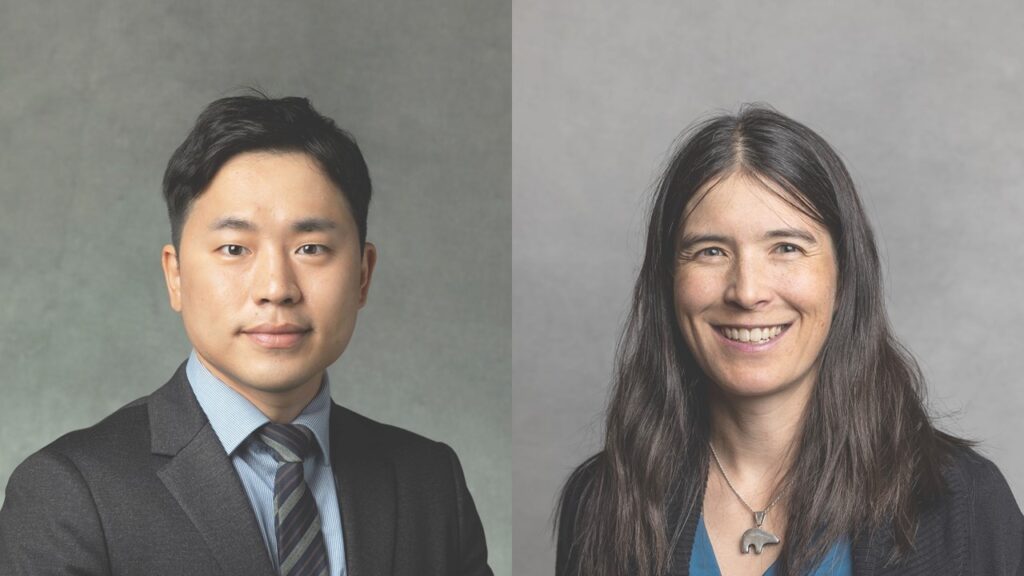Dr. Yohuru Williams and President Rob Vischer co-teach a course on race, law, and U.S. history. They co-wrote the following reflection.
The release of the video showing the fatal beating of Tyre Nichols has caused tremendous pain within our St. Thomas community, especially following so closely on the heels of events in the Twin Cities that have made us the epicenter of such discussions for the past few years. It is shared pain, felt most acutely by our Black students, faculty and staff.
As a Catholic university, we are committed to the principle of solidarity, which “binds us to make ourselves the neighbor of every person without exception.” As Pope Francis has reminded us, solidarity “always looks to the faces of the most vulnerable,” for we do not serve ideas, “we serve people.” Solidarity calls us to lean into the world’s pain and look directly into the faces we encounter, whether they belong to the victims of the recent Lunar New Year massacre and other mass shootings or the people living in tent communities in our own city.
And we are called to look into the face of Tyre Nichols. I hope you have seen the video of Tyre skateboarding – joyful, energetic, alive to the world. It is in heartbreakingly sharp contrast to the video of his beating by Memphis police officers – life slipping away, calling for his mom. Solidarity directs our gaze to Tyre’s face. But not Tyre’s face alone.
Solidarity is an empty shell without an understanding of history. For many members of our community, the trauma of Tyre’s death – replayed endlessly and commented on by millions in our 24/7 media-saturated culture – can only be understood through the lens of what came before.
When we understand our nation’s history of police brutality, including the ways in which it was turned into a weapon of state terror and directed at Black Americans, we can begin to see the many other faces that preceded Tyre’s. We can begin to understand why watching this video is so traumatic for many members of our community. When we understand the ways in which the rule of law was withdrawn from marginalized populations and replaced with brute, unaccountable force, we understand why violence at the hands of law enforcement is so deeply corrosive to public trust.
Understanding must be followed, of course, by action. What does it mean for you – for us – to, as Dr. King put it, “make a career of humanity?” As a university community, our primary venue for action will be in the classroom and campus spaces where we contribute to an understanding of our shared humanity and an appreciation of our higher mission and purpose. Solidarity will draw us out into the broader community as well. Whether through, for example, our Community Justice Project, our Racial Justice Initiative, the implicit bias training we are providing to police departments, the immersive experience of faculty and students traveling and learning together at the sites of the civil rights movement, our work tackling health and educational disparities, or our work through the Dougherty Family College to pull those on the margins into purpose and power, we are helping to bend the arc of history, bit by bit, toward justice. We are making a difference, but there is so much more we can do.
So what comes next? Are we ready to make ourselves the neighbor of every person without exception? Do we mean it? As we prepare for a new week, solidarity asks us to look directly into Tyre’s face. And allow ourselves to be moved by it, to mourn what has been lost. And to act.
Rob & Yohuru
Robert K. Vischer
President and Professor of Law
Yohuru Williams
Distinguished University Chair and Professor of History Founding Director of the Racial Justice Initiative
